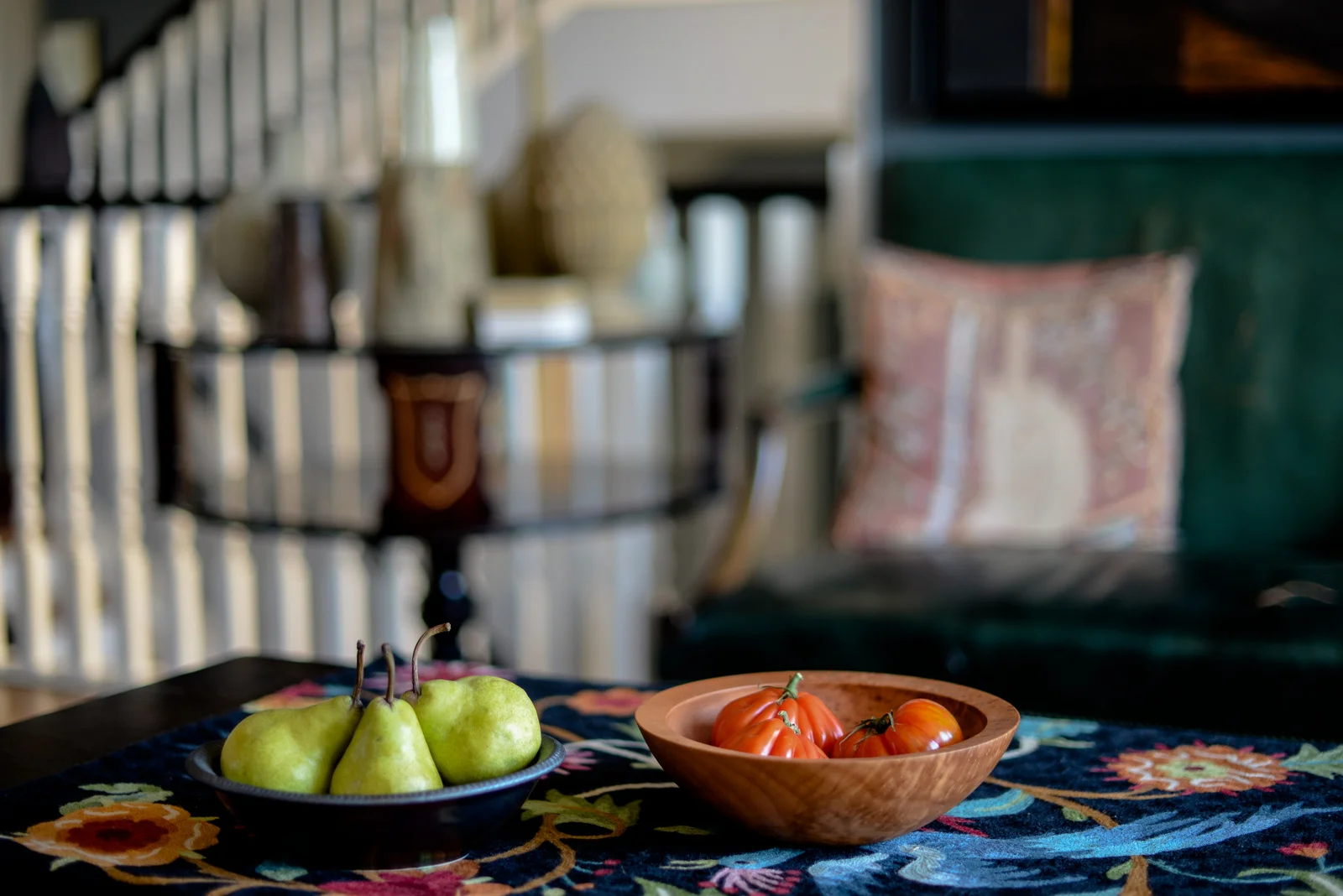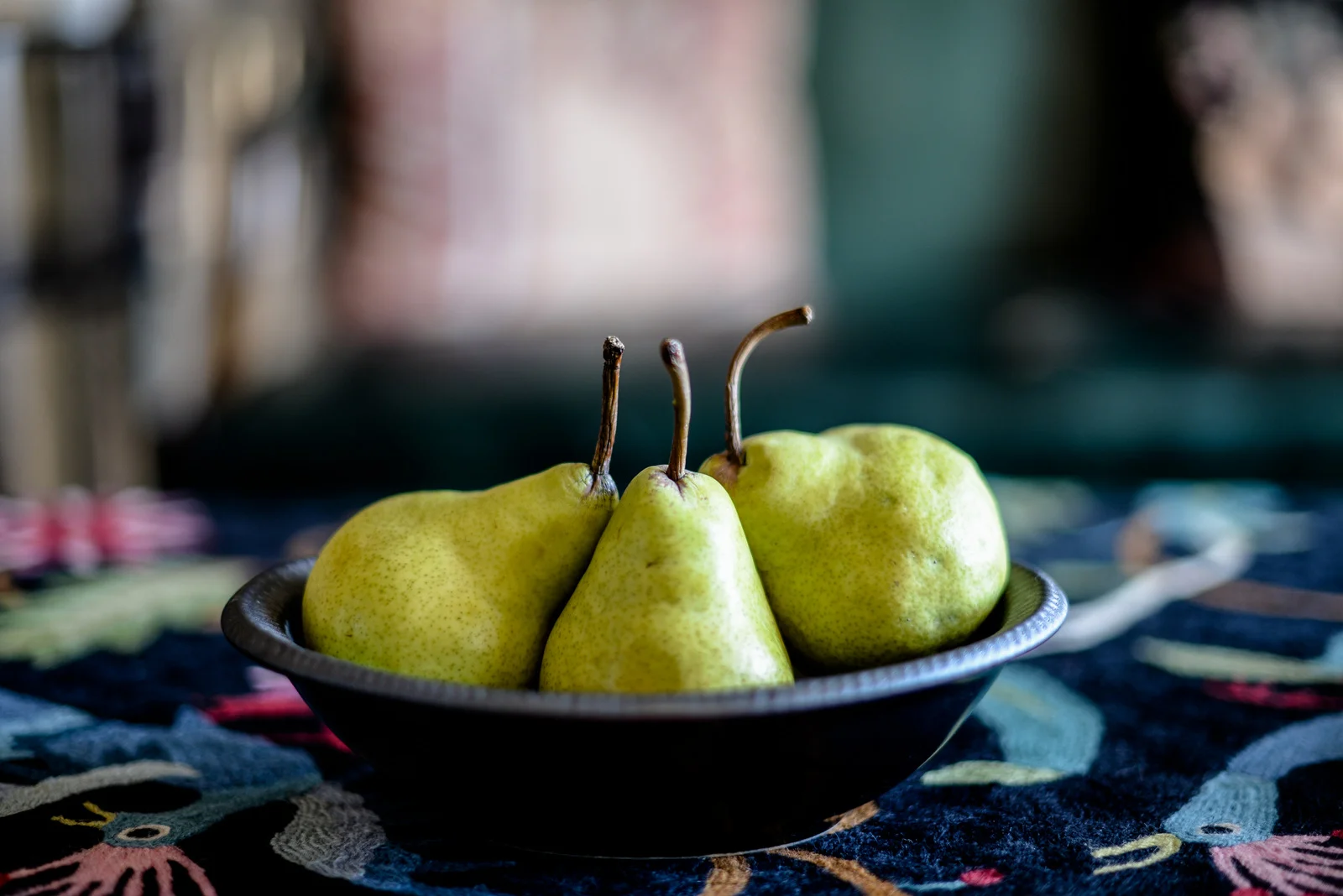Pears and Tomatoes, or, Thinking About Genre
I seem to be talking about genre a lot these days. I was part of a panel at the Writers’ Guild of Alberta Conference last weekend where we talked about the challenges and joys of working in slightly more unclassifiable genres.
Obviously I thought a lot about genre when I wrote The Flower Can Always Be Changing. I also thought about it when I wrote Asking. The two books have quite a few similarities, and yet I labelled Asking “poem-essays” and The Flower Can Always Be Changing is classified as brief essays though sometimes I think of them as essay-poems. Apparently it’s always been useless to compare apples to oranges, but what about pears and tomatoes? In one of the brief essays, I talk about the word “essay” meaning “try” and note how the work poetry contains the word “try.” Most often I think of everything that I write as a “try.” This seems the most honest way to classify things, but I can’t imagine a section in Chapters labelled as, “Tries.”
When writing something that is not quite one thing and not quite another, one knows that one is tossing away the hope of winning any literary prizes. (There is currently no prize for Weird Unclassifiable books, though I hope one day there will be). One knows that one’s book will be placed in odd and awkward spots in book stores. One knows that some readers will wish you had written a novel. One knows that others will disdain your work for pretending to be almost something and perhaps altogether something else. Your book will be a little bit harder to sell. There will be no book clubs reading your book. No matter.
My book has an epigraph by Clarice Lispector which I love.
“Genre no longer interests me. What interests me is mystery.”
At the same time as you know your book is going to confound classification systems in libraries, and end up in the wrong section in book stores, when you’re writing the book, you will feel as though you are in rather glorious company.
The incredible Anne Boyer wrote a tweet not long ago where she said:
“there are entire genres women write that do not yet have names”
Worthwhile reading the entire thread.
In Garments Against Women, Boyer writes in “The Innocent Question” the following:
“Some of us write because there are problems to be solved. Sometimes there are specific, smaller problems. A friend who has a job as a telephone transcriptionist for people who can’t hear has had to face the problem of what to do when one party he is transcribing has sobbed.”
In another piece she writes:
“I did what I could. I was so lonely. I loved you. I wrote many small books using methods and forms popular and unpopular with my contemporaries.”
C.D. Wright’s Cooling Time is one of my go-to books. I have conversations in my head with it on a regular basis. She says:
“I admire poetry that confutes its own formal conditions – poetry that due to the exigence of its own matter exceeds its own limits. Some of us do not read or write particularly for pleasure or instruction, but to be changed, healed, charged. Therefore, the poet’s amplitude may take precedence over her strategies.”
There is the problem of trying to fit our thoughts and language into the same places they have always fit into. What is wanted is a spaciousness, a generosity, and an airing out of what might be thought to be obscure. Wright says:
“it is not that the language is exhausted, it is that we run down; it’s not that the edge won’t cut anymore, it is that the cuts are getting thinner.”
And one last one from her:
“I do not know if I am trying to do something new, but I know I am trying to learn something new. The doors fling themselves open.”
Another book I was quite fond of while writing my latest is 300 Arguments: Essays by Sarah Manguso. One of the fragments/arguments reads:
“The word fragment is often misused to describe anything smaller than a bread box, but an eight-hundred page book is no more complete or unbroken than a ten-line poem. That’s confusing size with integrity. An ant is not a fragment of an elephant except orthographically.”
I could go on at length, but let me just name a few more books that meant a lot to me when I was writing both Asking and The Flower. Clarice Lispector’s Selected Crônicas. can’t and won’t: stories by Lydia Davis. I Love Artists by Mei-Mei Berssenbrugge.
Some of the books are classified as stories, others poems, and other essays. But they have quite a lot in common.
I was also really enamoured with Jenny Holzer’s Truisms which appeared on movie marquees. And I think they fit in somehow with these other books I’ve mentioned.
Lastly, I would say that blogging, the blog post, was an influence on my latest book. At the conference, I talked a bit about the ‘not-coolness’ of blogging in the 21st century, and I think it’s true, but also that it’s uncoolness has a certain allure. It’s true that I’ve never been one of the cool writers, and seem to become less so all the time, unless you consider a 50+ woman experiencing the ongoing bizarre and decrepit symptoms of perimenopause living in the suburbs in a city at latitude 53 writing obscure books and taking an excessive number of leaf photographs and who is obsessed with figuring out what the beautiful even is and how it operates on our souls, to be cool.







